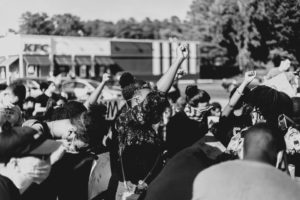 On June 26, 2020, I marched alongside my brothers and sisters in Pembroke as part of a peaceful march against police brutality. Lumbee counter-protestors claim they came to the peaceful march to defend their property and the town itself. If that were the case, why were some intoxicated, screaming racial slurs and throwing bottles and cans at us while we marched? The hatred and vitriol screamed at us as we peacefully marched do not exemplify the actions of those intent on defending personal property, but provocateurs antagonizing peaceful protestors.
On June 26, 2020, I marched alongside my brothers and sisters in Pembroke as part of a peaceful march against police brutality. Lumbee counter-protestors claim they came to the peaceful march to defend their property and the town itself. If that were the case, why were some intoxicated, screaming racial slurs and throwing bottles and cans at us while we marched? The hatred and vitriol screamed at us as we peacefully marched do not exemplify the actions of those intent on defending personal property, but provocateurs antagonizing peaceful protestors.
Other counter-protestors held signs that read “All Lives Matter,” in sharp contrast to the call-and-response protestors chanting, “Black Lives Matter” and “No Justice, No Peace.” All Lives Matter, of course, cannot be the antithesis of Black Lives Matter. As Indigenous people, we would be indignant to participate in a peaceful Murdered and Missing Indigenous Women and Girls (MMIWG) march and be met with armed felon counter-protestors hurling projectiles and racial slurs at us. And many Indigenous people are indignant about the events of June 26th. In fact, many tribal members have publicly expressed their indignation on social media. The tribal chairman, the Town of Pembroke, and UNCP Chancellor Robin Cummings have all issued public statements condemning the behavior of counter-protestors.
Such reactive measures offer, as Robert Gordon, a psychologist specializing in psychoanalysis and forensic psychology, explained, in “The Power of the Apology,” only two elements of the apology: acknowledgment and remorse. Public apology statements lack empathy, the additional component of remorse. At present, public apologies also lack the third element of Gordon’s trifecta—restitution.
If the Lumbee tribe intends to move forward, our Black brothers and sisters are going to need more than public apologies. There are over 50,000 members of the Lumbee Tribe of North Carolina alone. The largest count to date indicates that twenty or so attended the peaceful march. The number of Lumbee counter-protestors far exceeded the number of Lumbee BLM protestors. Reactive public apologies do not atone for our absence. We should have been there.
Acknowledgment of our absence is necessary, but our brothers and sisters also need empathy. Empathy will come in conceding that Black men, women, and children are victims of police brutality. We can no longer be silent while our Black brothers and sisters are murdered and abused by law enforcement.
In 1991, Rodney King was beaten by four officers. In 2014, the New York City Medical Examiner ruled Eric Garner’s death a homicide at the hands of law enforcement. In 2015, Charleston law enforcement officer Michael Slager murdered Walter Scott. In 2018, off-duty officer Amber Guyger murdered Botham Jean. Black people are being murdered at the hands of law enforcement. It is happening. King, Garner, Scott, and Jean are only a handful of examples. The full list, of course, is innumerable. Black men, women, and children are having too many abusive and, often, fatal encounters with law enforcement.
I have no doubt that people of other races and ethnicities are victims of police brutality as well, but shouldn’t we question the underlying rationale and implicit biases that make it acceptable to counter BLM protestors with All Lives Matter? Shouldn’t we also question, why, exactly, MMIWG, for example, hasn’t faced such incredulity? Both All Lives Matter and Back the Blue are direct responses to BLM. Where were these movements when the American Indian Movement (AIM) fought for indigenous victims of police brutality? What is, actually, happening?
And yet, despite all these disparities, Black men and women have stood, in solidarity, with us throughout history. Dr. Martin Luther King Jr., the father of nonviolent protest in the U.S., changed the course of history for all people of color in this country. King was also clear that turning to violence, in any effort to do so, was both “impractical and immoral.” What counter-protestors exhibited toward peaceful protestors on June 26th in Pembroke was impractical and immoral. It was also King who helped bring Indigenous genocide to the forefront of consciousness in this country. In 1963, King wrote, “Our nation was born in genocide when it embraced the doctrine that the original American, the Indian, was an inferior race.” He went on to describe a nation that “elevated that tragic experience into a noble crusade.” Nearly sixty years later, we are still fighting to suppress and change the narrative of that “noble crusade”.
It was also King who helped the Poarch Band of Creek Indians desegregate schools in Alabama. It is the civil rights movement that inspired Indigenous people to fight for their respective rights. John Echohawk, founder of the Native American Rights Fund stated, “Inspired by Dr. King, who was advancing the civil rights agenda of equality under the laws of this country, we thought that we could also use the laws to advance our Indianship, to live as tribes in our territories governed by our own laws. . . . We believed that we could fight for a policy of self-determination that was consistent with U.S. law and that we could govern our own affairs, define our own ways and continue to survive in this society.” AIM, founded mere months after King’s assassination, in 1968, was inspired by the civil rights movement. Lumbee people were once inspired by King, the NAACP, and the civil rights movement. Somehow, we’ve lost our way.
Lumbee people—politics is not a substitute for morality. It can never be. On June 26th, 2020, we should have been there. Today, we owe our Black brothers and sisters, the last element of the apology that Gordon asserted—restitution. We owe them, at the very least, our presence. We need to say to our Black brothers and sisters, unequivocally, we were wrong. We hear you now. We stand with you. We are with you moving forward.
Racism isn’t our history. Racism won’t be our legacy.
Jenny L. Teague is an indigenous educator and co-founder of the North Carolina Center for Women’s Justice.
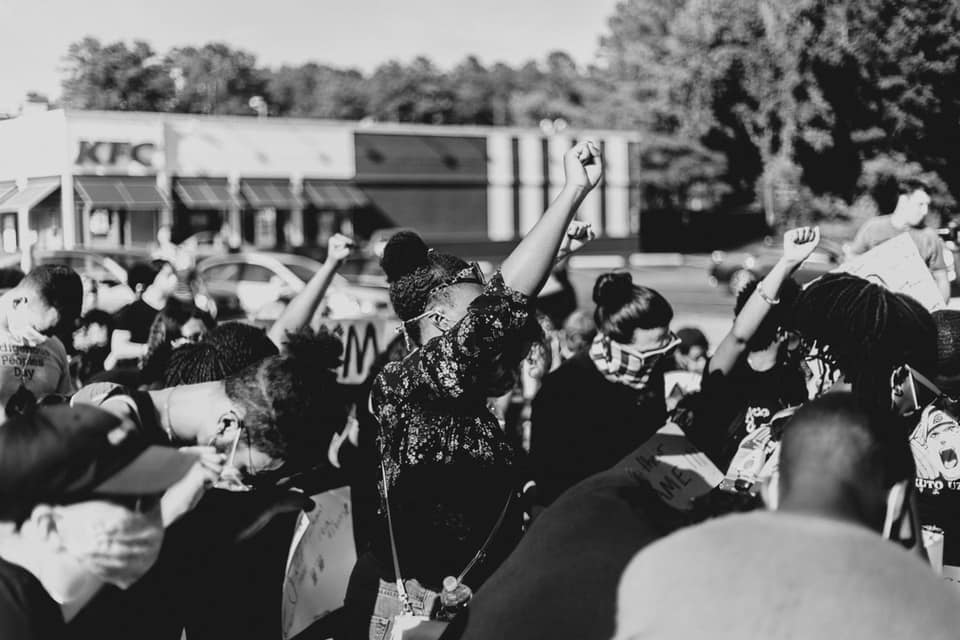
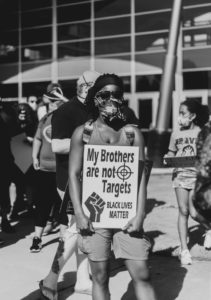
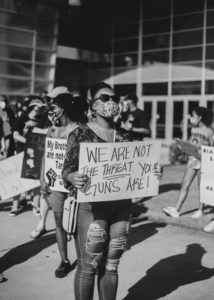
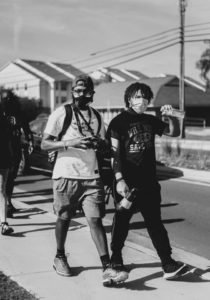
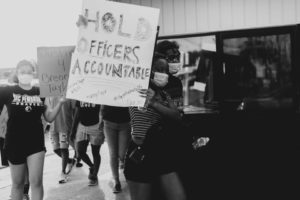
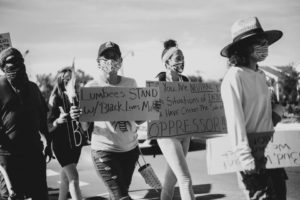

There are no comments
Add yours